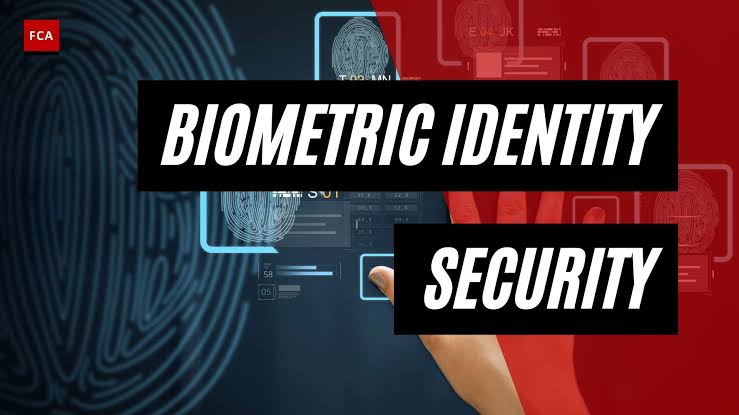Biometric technology has emerged as one of the most reliable and secure methods for identity verification in various sectors. Unlike traditional methods such as passwords or ID cards, biometric systems use unique physical and behavioral traits to confirm a person’s identity. These traits may include fingerprints, facial features, iris patterns, voice recognition, or even behavioral patterns like typing speed. As technology advances, biometric solutions are being integrated into banking systems, airports, corporate environments, and even personal devices, offering improved accuracy and security.
Enhanced Security and Accuracy
One of the most significant benefits of biometric technology in identity verification is its high level of security. Physical traits such as fingerprints and iris scans are unique to every individual, making it almost impossible for someone to replicate or steal them. This level of uniqueness drastically reduces the chances of identity fraud compared to traditional systems that rely on PINs or passwords, which can be guessed or hacked.
Moreover, biometric systems offer remarkable accuracy. Advanced algorithms and machine learning models are capable of identifying even the smallest differences in biometric data, ensuring that verification processes are both precise and reliable. This accuracy is critical in high-security areas such as government facilities, defense organizations, and financial institutions.
Speed and Efficiency in Verification
Biometric systems are known for their ability to process verification requests quickly. Whether it is unlocking a smartphone with a fingerprint or passing through airport security using facial recognition, these processes can be completed within seconds. This speed improves the user experience while maintaining strong security measures.
In workplaces and government offices, biometric verification can streamline attendance tracking and access control. Employees can simply scan their fingerprint or face for entry, eliminating the need for manual sign-in sheets or security personnel to verify identities.
Convenience for Users
Another advantage of biometric verification is the convenience it offers. Users do not need to remember complex passwords or carry physical access cards, which are often lost or forgotten. Instead, their identity is always with them, stored in their unique biological characteristics.
For example, mobile banking apps now use fingerprint or facial recognition for secure logins, reducing the frustration of entering lengthy passwords every time. This ease of use encourages more frequent and secure engagement with digital platforms.
Reduction in Identity Fraud
Identity theft is a growing concern in the digital age, costing individuals and organizations millions each year. Biometric technology significantly reduces this risk because personal biometric data is extremely difficult to duplicate. Even if a hacker gains access to biometric templates stored in a secure system, the encryption methods used make it challenging to reconstruct or misuse the data.
By requiring physical presence for verification, biometric systems make it nearly impossible for criminals to impersonate someone remotely. This is particularly important for online transactions, secure facility access, and legal identity confirmations.
Integration with Multi-Factor Authentication
While biometrics provide strong security, they can be even more effective when combined with other verification methods in a multi-factor authentication (MFA) approach. For example, a bank may require both a fingerprint scan and a one-time password sent to a user’s phone before granting access to sensitive accounts.
This layered security ensures that even if one verification factor is compromised, unauthorized access remains highly unlikely. Organizations are increasingly adopting such hybrid approaches to maintain a balance between security and user convenience.
Applications Across Various Sectors
Biometric technology is being widely implemented in different industries for secure identity verification.
Some common applications include:
- Airports using facial recognition for passenger boarding and immigration control
- Banks using fingerprints and facial scans for secure online banking and ATM transactions
- Corporate offices implementing biometric access control for employees
- Government agencies using iris scans for national ID systems and voter registration
- Healthcare providers securing patient records with biometric authentication
Addressing Privacy Concerns
While biometrics offer great benefits, privacy concerns remain a major consideration. The collection and storage of biometric data raise questions about data protection and misuse. Users worry about how their biometric information will be stored, who has access to it, and whether it can be shared without consent.
To address these concerns, organizations must adopt strict data protection measures, including encryption, secure storage, and compliance with relevant data privacy laws. Clear policies should also be communicated to users about how their biometric data is handled.
The Future of Biometric Verification
Advancements in artificial intelligence, sensor technology, and cloud computing will continue to make biometric systems more accurate, faster, and accessible. Emerging trends such as touchless biometrics, voice authentication, and continuous authentication methods are set to redefine how identity verification works.
In the near future, we can expect more seamless and integrated biometric systems that allow people to access services and locations without interrupting their normal activities. For example, walking into a store and automatically making a payment through facial recognition could become a common reality.
Conclusion
Biometric technology is transforming identity verification by offering unmatched security, speed, and convenience. Its applications span across multiple industries, helping to reduce fraud, improve efficiency, and enhance user experiences. While privacy concerns must be addressed through proper regulations and technological safeguards, the benefits of biometric systems make them a cornerstone of modern security strategies.



